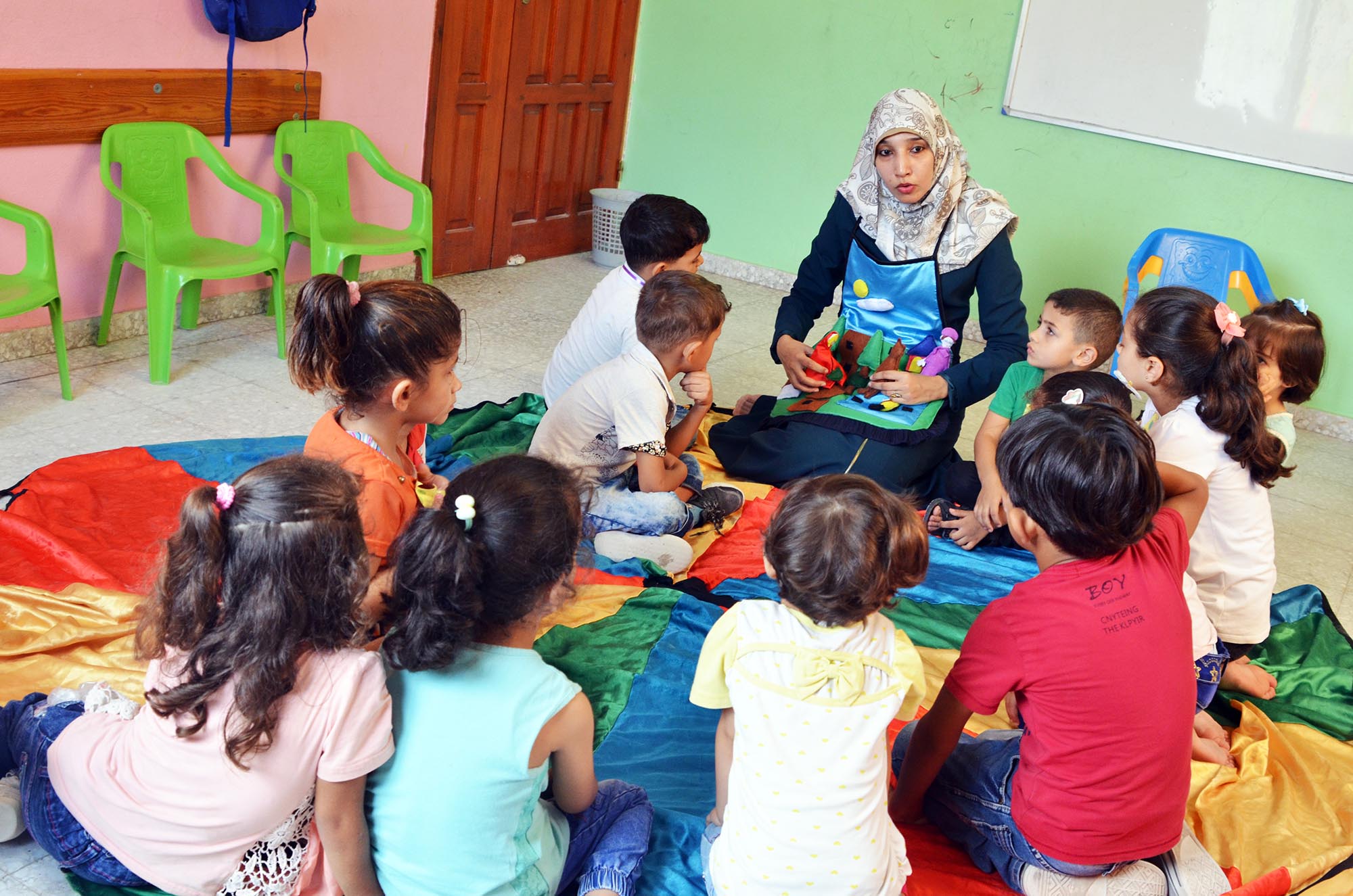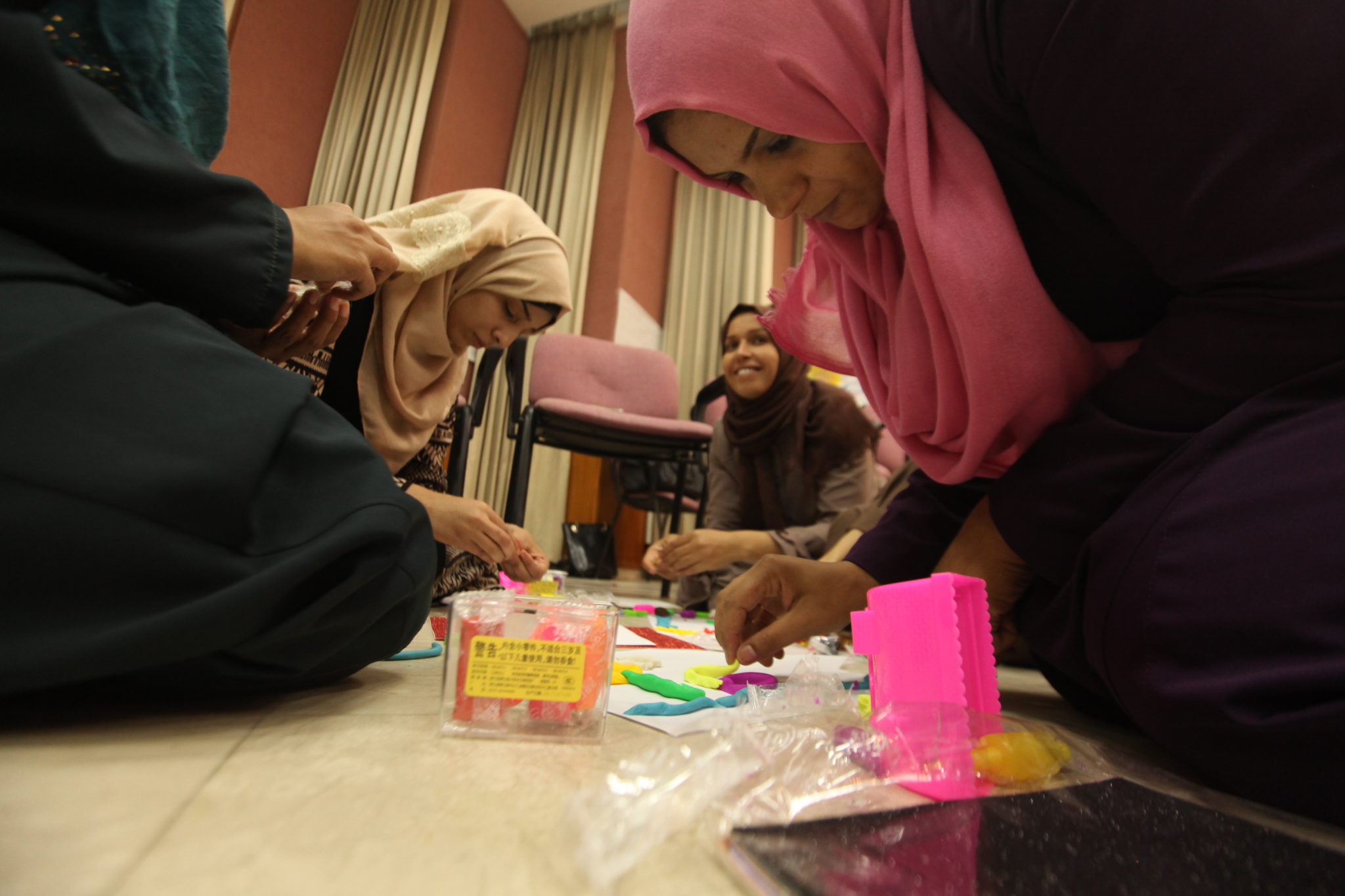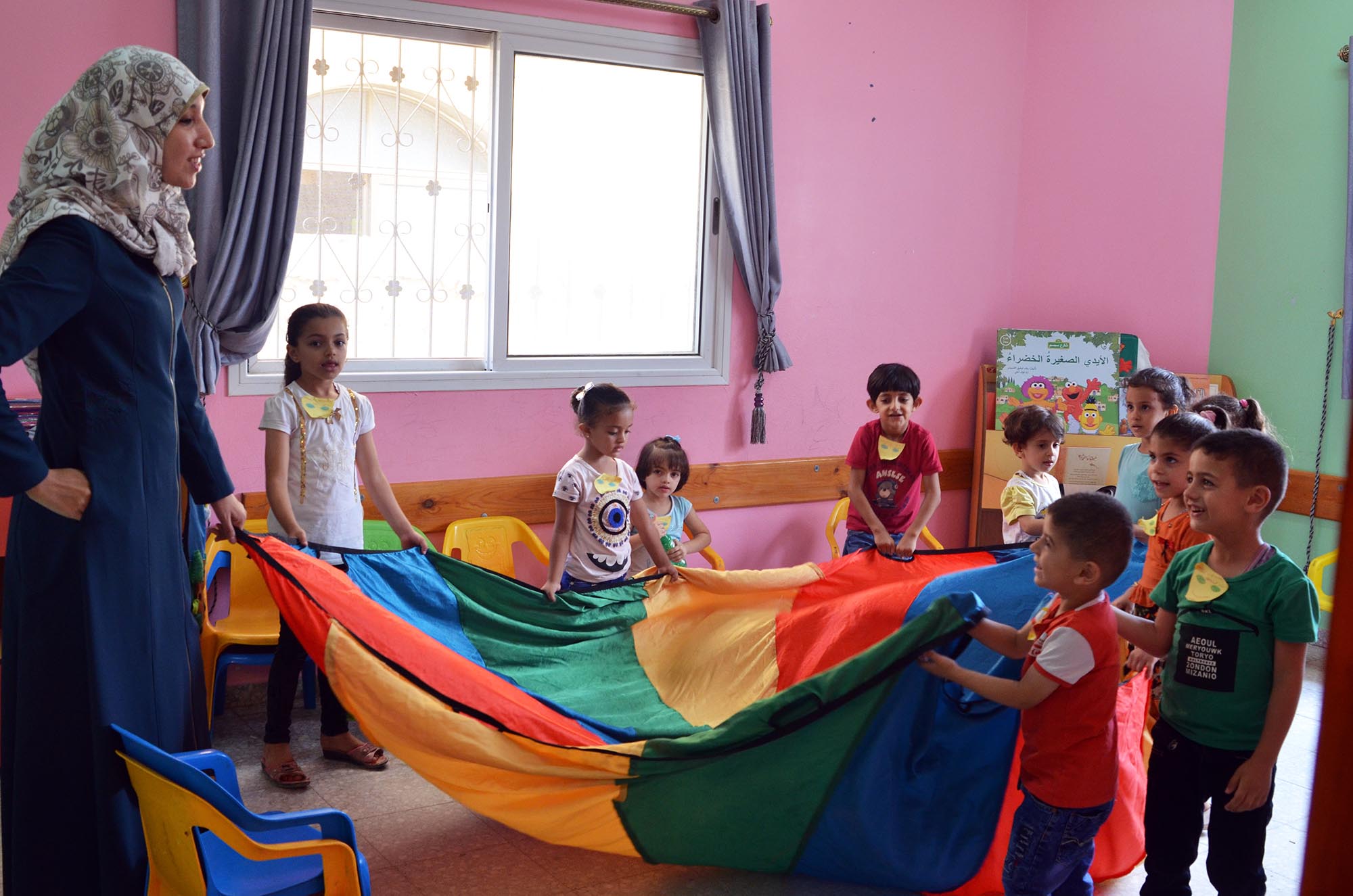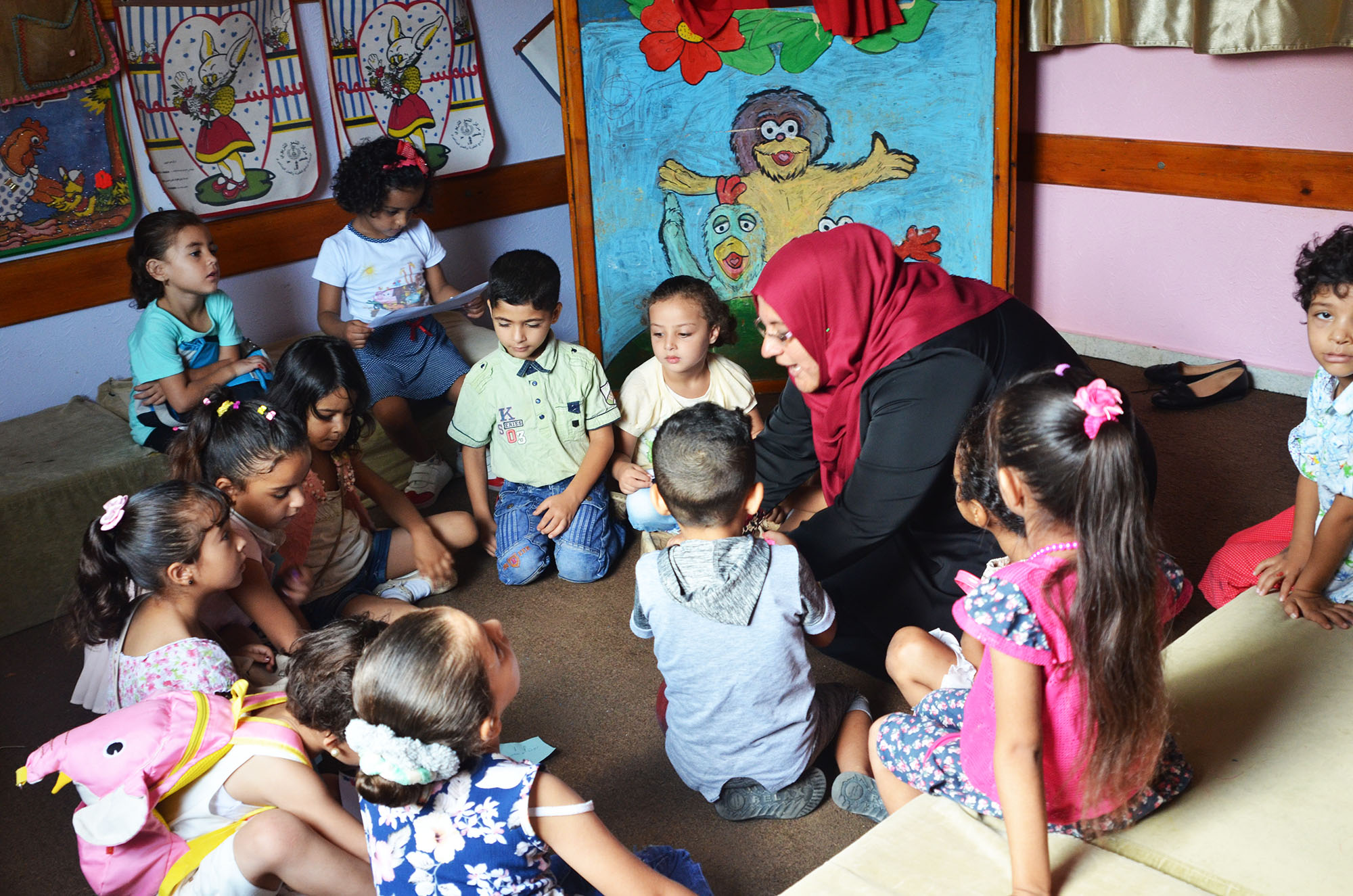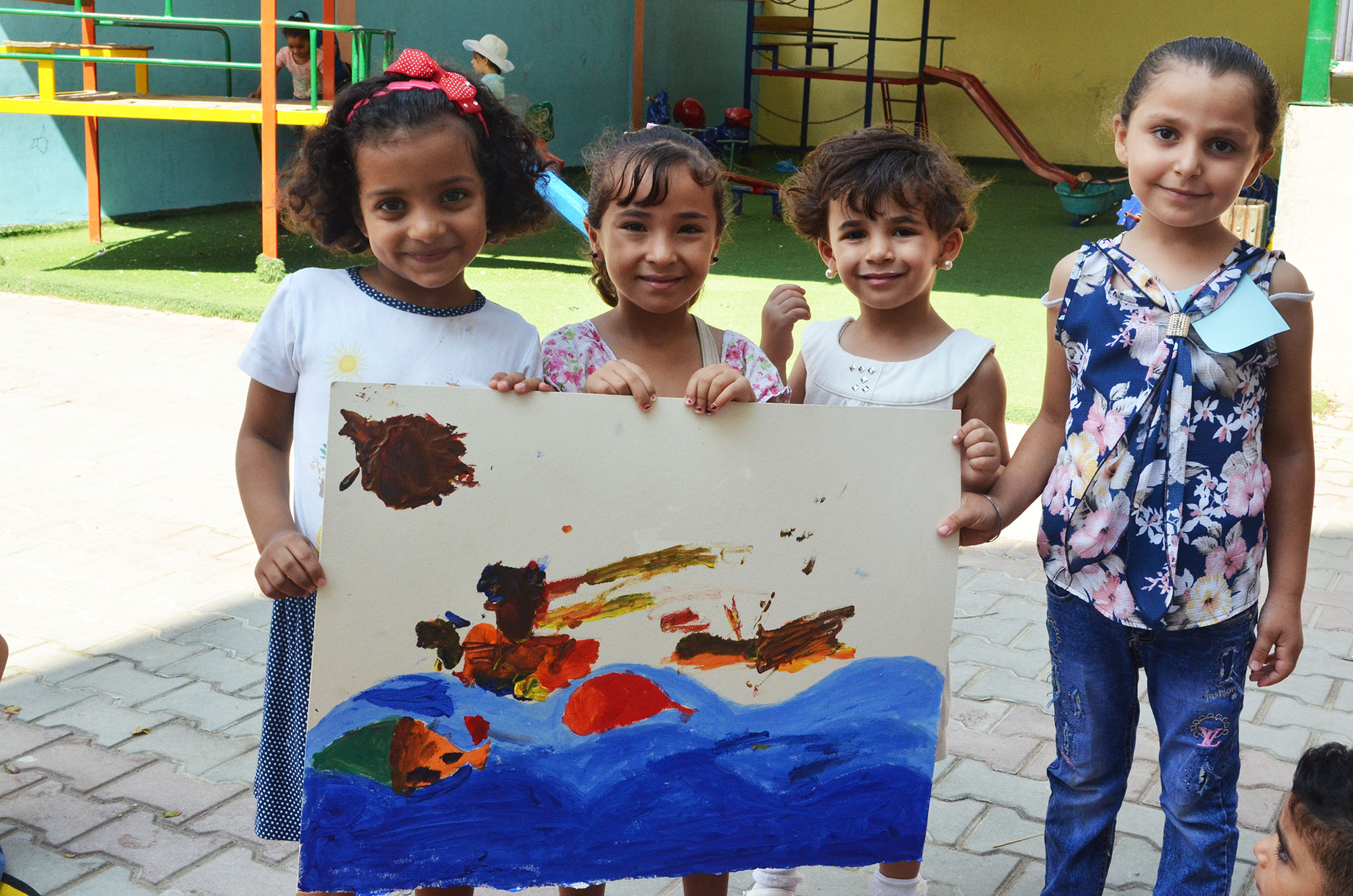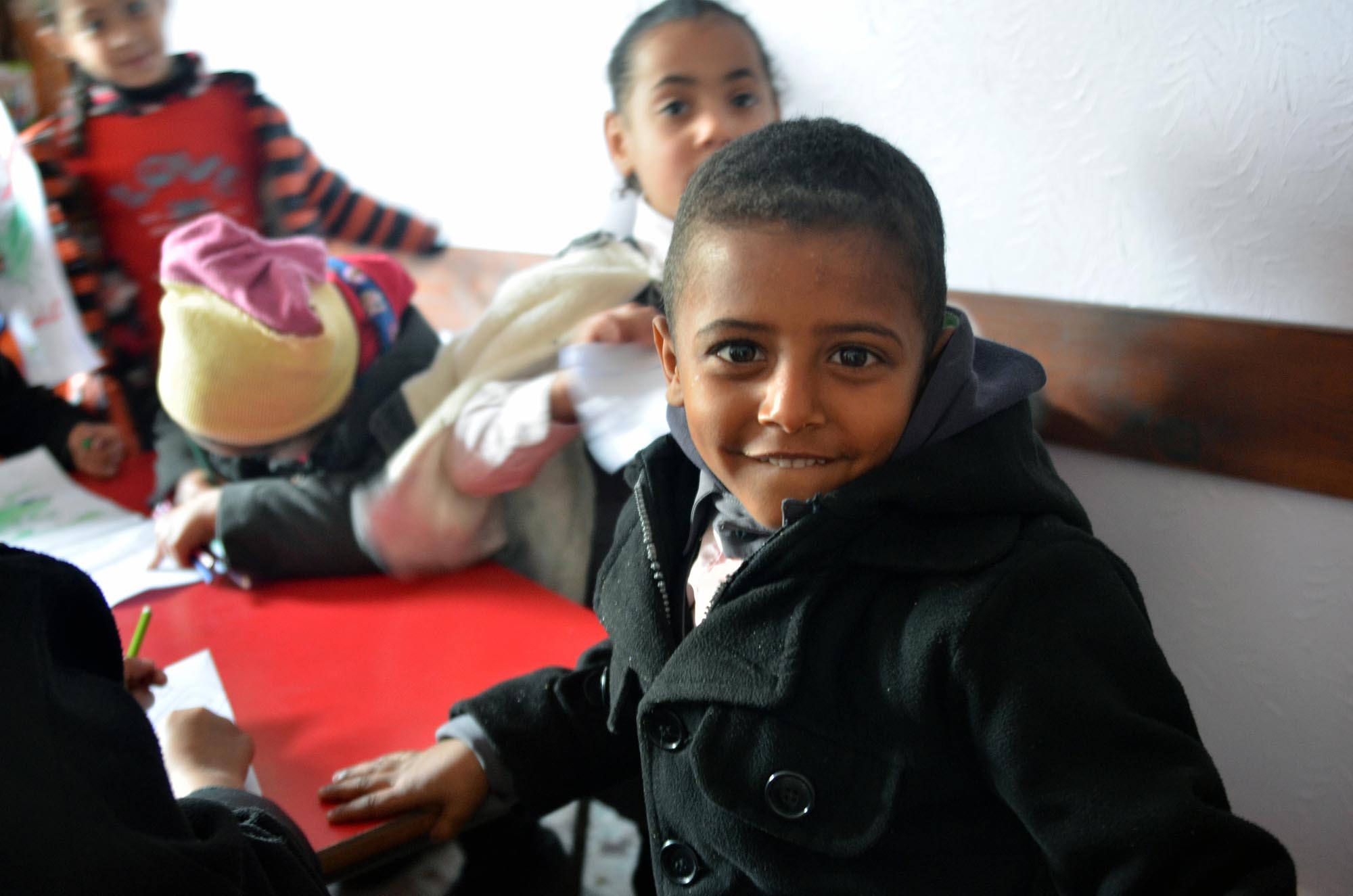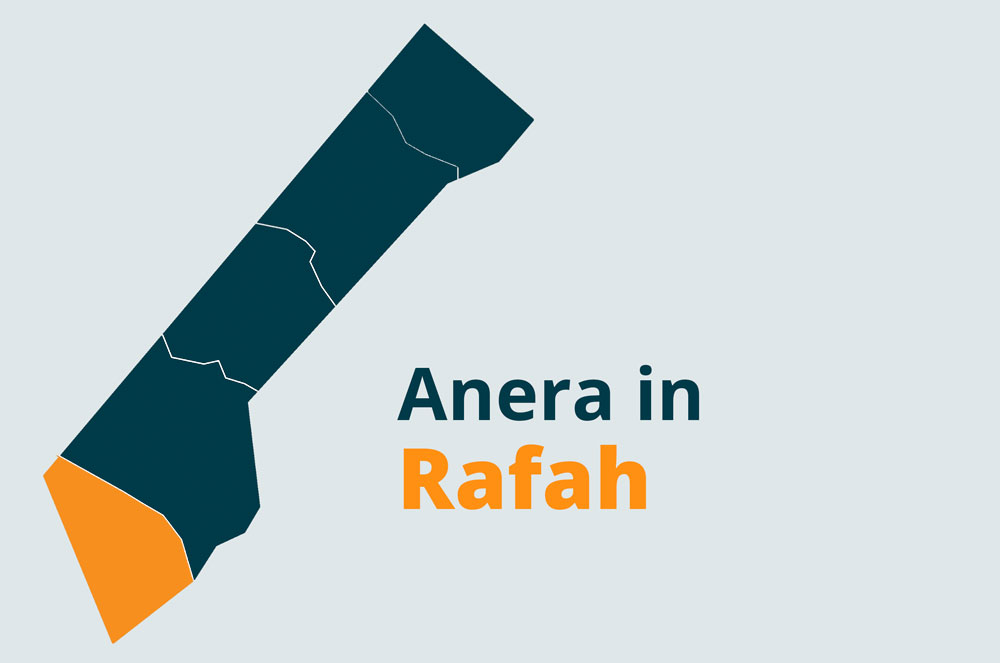EDUCATION
Responding to the Psychosocial Needs of Gaza's Preschoolers
Mar, 2019
“I benefited from the expressive arts training enormously and this has impacted on me professionally and personally. I am now able to support and work with children in the kindergarten and at home better. I can use different activities to ensure children are engaged and stimulated better." - Ala', a teacher at Awdah Kindergarten in Jabalia, Gaza.
Anera is the main organization that supports vulnerable preschoolers in Gaza. Unfortunately, many other organizations supporting preschools are no longer working in Gaza.
Because there are only ten public kindergarten classes offered in Gaza, the burden is generally on parents to find and pay for kindergarten education for their children. Charitable and private institutions are the main providers of preschool education and all charge modest fees. This restricts the growth and development of preschool education in Palestine as many parents are not able to meet the basic fees. In Gaza, kindergartens tend to lack basic facilities and resources and most are not well serviced and maintained. Teachers are poorly paid and have very few professional development opportunities, impacting quality.
Holistic Education - Addressing Student Emotional Needs in Gaza
In 2018, with funding from the Dorothea Haus Ross Foundation, Anera launched a program in Gaza to strengthen the resilience of children affected by conflict and pervasive violence. The psychosocial support initiative provided preschoolers with a protective environment in their communities. Anera designed the program to increase the capacity of teachers to reduce the tensions and anxieties of traumatized children in their care by engaging the kids in activities that encourage self-expression, build self-confidence, and improve their overall psychological well-being.
The project aimed to enable teachers to address the emotional and social needs of children in their care by providing the teachers with training in expressive arts. The program also offered a series of creative developmental and therapeutic arts and sports opportunities over a period of four weeks for children in kindergartens across the Gaza Strip.
The Program for Palestinian Preschoolers and Teachers in Practice
In July 2018 Anera trainers delivered a comprehensive six-day course in expressive arts for 63 teachers and assistants from 10 kindergartens in Gaza. Following the training, teachers delivered four weeks of expressive arts activities benefiting 862 children. Teachers, children and their parents were very happy with the program and all requested further support.
Anera recruited six trainers and, before the training began, Anera’s in-house trainers and ECD specialists developed session plans, which they shared and reviewed with the training team. The sessions included an introduction to arts and psychosocial support, music and movement, story telling, drama and puppet work, and art and painting.
Anera created the materials for the trainings, which included essential literature on trauma and its effects on children, learning theories and a variety of teaching strategies using the expressive arts (drama, music and movement, art, puppetry and storytelling) to meet the psychosocial needs of children. These resources included a training guide, sample lesson plans, presentations and training videos.
After completing the training, teachers returned to their kindergartens to plan for the four weeks of expressive arts activities. With the help of the trainers, teachers planned and reviewed their daily and weekly sessions.
Feedback from Teachers in Palestine
Anera interviewed teachers about the training and the summer camps. Ala' is a 29-year-old teacher at the Awdah Kindergarten, where she has been working for four years. She says,
"We were in need of training and support more than the children! The project helped us to relieve our own stress and enabled us to identify what children are suffering from and how to help them.
Sahar, a 39-year-old teacher at Jabalia A Kindergarten where she has worked for 11 years, comments,
"The teacher training helped me make my preschoolers more sociable and less aggressive. We live in refugee camps where the environment is tough. Children tend to act aggressively and often don’t socialize together. These teaching methods have enabled me to resolve conflicts between children and has had a positive impact on the general atmosphere in the classroom. The kids love the music and drama activities and I have gained new skills to treat their anxiety and anger. I use these techniques in my classroom every day."
30-year-old Ala' is a teacher at Al Bureij B kindergarten where she has been working for five years. She says,
"The summer camp really increased my self confidence and helped me work better with children. Nearby kindergartens are now seeking our assistance as a result of the training with Anera. Being able to work with children with emotional and behavioral issues has helped all of us at the school. I hope we can continue these training and mentoring programs in the future."
An independent evaluator of Anera’s program noted that, following the courses, teachers:
- Permit students to exhibit greater creativity in their drawings
- Listen to children without judgement
- Refrain from discriminatory behavior toward children
- Avoid making negative comments toward students
- Have stopped relying upon punishment and threatening language to control children
- Are more patient with their students
- Communicate more with parents and have started involving them to solve student problems
- Foster friendly relationships among children
One teacher comments,
"I used to complain about the children in my preschool. They were very aggressive because of their circumstances and environment. At the Anera trainings, I got a lot of knowledge and skills regarding how to deal with their psychological problems and I am applying what I learned. The results have been great and the children are less aggressive than before."
Nearly all teachers have requested more support through additional trainings. Some teachers are supporting colleagues in other kindergartens, suggesting a dire need for an expansion of programs training teachers in psychosocial support.
Teachers reported that they have continued to utilize what they have learned beyond the lifetime of the project. This built-in sustainability element is critical in improving the well-being of children through more responsive pedagogical and psychological support. As the program evaluation report notes, "The impact of this project is tangible with positive effects on preschoolers, preschools, preschool teachers and caregivers as well. It is important to keep the momentum and provide more support to preschools."
Looking to the future of Early Childhood Development (ECD) in Gaza
The long-term goal of the project is to build the capacity of preschool teachers to address the psychosocial needs of traumatized children, enabling them to multiply the impact of their training beyond the project’s timeline and improving the lives of all children they encounter, during the school year and beyond.
Children in Gaza display symptoms of long-term and chronic stress brought about by the siege, intermittent fighting and difficult social and economic circumstances. Many of the symptoms presenting are issues of anger, behavioral problems, lack of concentration and disinterest in kindergarten classes.
Training and mentorship enhances the quality of pedagogy and how teachers interact with children. Expressive arts training and activities enable teachers to utilize newly acquired skills during and after the project to maintain better approaches to enhancing the well-being of children. However, given the difficult social and economic conditions in Gaza and the limited public support for the preschool sector, building upon this project will require additional external support to scale up to additional kindergartens.

